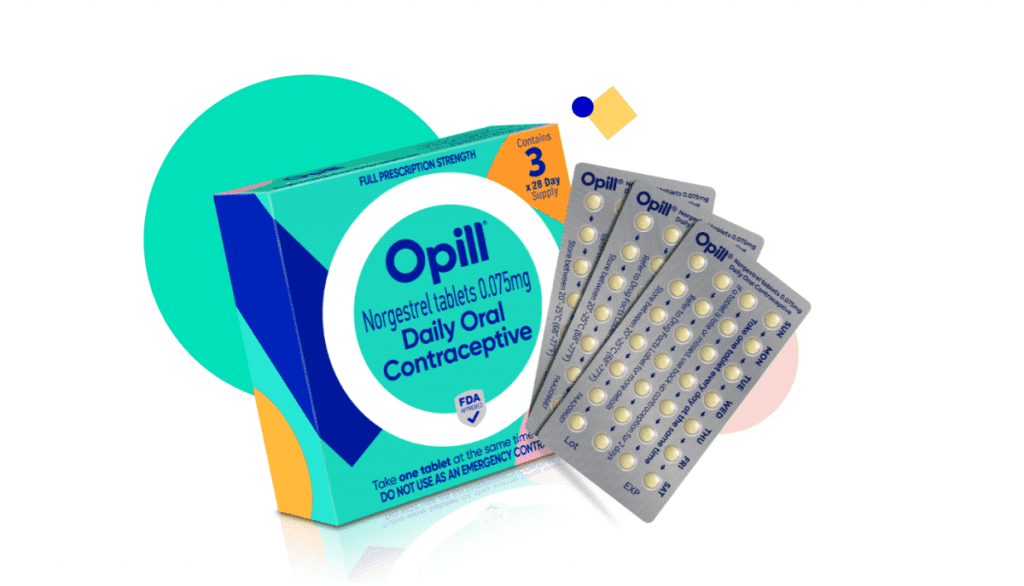A Landmark Move: FDA Approves Over-the-Counter Birth Control Pill
The Food and Drug Administration (FDA) has recently endorsed Opill, a new over-the-counter birth control pill, marking a historical turning point in contraception access.
Developed by the Dublin-based Perrigo Company, this highly efficient birth control method surpasses the effectiveness of condoms, spermicides, and other non-prescription means of contraception.
Groundbreaking Leap for Reproductive Health
Health experts assert that the availability of Opill will be of particular advantage to young women, teenagers, and those facing challenges accessing doctor-prescribed birth control due to time, cost, or logistical constraints.
Perrigo Company announced that Opill would likely hit the US market in early 2024, both in stores and online retailers. While the pricing details remain undisclosed, Frédérique Welgryn, Perrigo’s Global Vice President for Women’s Health, pledged that the company would strive to make the pill “accessible and affordable to women and people of all ages.”
Perrigo also plans to roll out a consumer assistance program offering the pill at no cost to some women.
The FDA Panel’s Unanimous Endorsement of Opill
In May 2023, an independent panel of 17 scientific advisors to the FDA unanimously concluded that the benefits of an over-the-counter birth control pill far outweigh the risks. The pill, identical to the prescription version, boasts a 93% efficacy rate in preventing pregnancy with typical use.
The approval aims to provide a convenient option for consumers to purchase oral contraceptive medicine from various outlets. This marks the first time a daily oral contraceptive has been approved for non-prescription use. The decision aims to increase access to contraception and reduce barriers for millions of people.
Opill’s manufacturer, Laboratoire HRA Pharma, demonstrated its safe and effective use through consumer understanding of the drug’s labelling, without the need for healthcare professional assistance. While Opill offers a new option for non-prescription contraception, it should be taken consistently at the same time every day for optimal effectiveness. The FDA’s approval of Opill reflects a significant step towards expanding access to contraceptives and addressing public health concerns surrounding unintended pregnancies.
Opill is not intended for emergency contraception or protection against sexually transmitted diseases. The FDA granted approval to Laboratoire HRA Pharma, now owned by Perrigo Company plc.
How does Opill Work?
Opill, a “mini pill”, contains only one hormone, progestin, distinguishing it from “combination” pills that include both progestin and estrogen. Perrigo’s Opill is leading the way, but it may not be the only over-the-counter birth control option in the future. Cadence Health, a company that produces a combination pill, is also in discussions with the FDA about over-the-counter status.
The key ingredient in Opill is norgestrel, a hormone belonging to the progestin family. Unlike most birth control pills, Opill doesn’t contain estrogen. The efficacy of this contraceptive hinges on its daily intake at the same time each day. When used correctly, norgestrel’s effectiveness rate reaches up to 98%. But, it’s important to note that typical use, influenced by human errors like forgetting a pill, can lower this rate.
Norgestrel was initially approved as a prescription drug in 1973, but its production was halted in 2005 due to business decisions. Opill’s recent approval breathes new life into this contraceptive method.
Potential side effects of Opill include irregular bleeding, headaches, dizziness, nausea, increased appetite, and abdominal pain.
It is contraindicated for individuals with breast cancer or other forms of cancer and should not be used in conjunction with other hormonal birth control methods. Changes in vaginal bleeding patterns may occur, and consumers should consult a healthcare provider for any concerns.
Norgestrel offers no protection against sexually transmitted infections (STIs), and it may interact with certain drugs or supplements.
Ensuring Safe Use and Adherence
Concerns have raised about whether women would heed the warnings and avoid the product despite having medical conditions that should preclude them from taking birth control pills, primarily breast cancer and undiagnosed vaginal bleeding.
There are also queries about whether younger adolescents and people with limited literacy could follow the directions.
The FDA’s approval of Opill as an over-the-counter birth control pill is an historic move towards expanding access to contraception in the United States. Its impending availability raises both hopes and concerns around affordability, accessibility, and safe usage. The impact of this shift on women’s reproductive health and rights will unfold in the coming years.
References:
- plc, P. C. (n.d.). Perrigo’s HRA Pharma Submits Application to FDA for First-Ever OTC Birth Control Pill. Perrigo’s HRA Pharma Submits Application to FDA for First-Ever OTC Birth Control Pill. https://www.prnewswire.com/news-releases/perrigos-hra-pharma-submits-application-to-fda-for-first-ever-otc-birth-control-pill-301583602.html
- Joint Meeting Of The Nonprescription Drugs Advisory Committee And The Obstetrics, Reproductive, And Urologic Drugs Advisory Committee (2023 May 9) https://www.fda.gov/media/167893/download
- FDA Approves First Nonprescription Daily Oral Contraceptive. (2023, July 13). FDA Approves First Nonprescription Daily Oral Contraceptive | FDA. https://www.fda.gov/news-events/press-announcements/fda-approves-first-nonprescription-daily-oral-contraceptive
- Opill® Official Site – OTC daily birth control pill. (n.d.). Opill® Official Site – OTC Daily Birth Control Pill. https://opill.com/
Image credit: Opill.com

